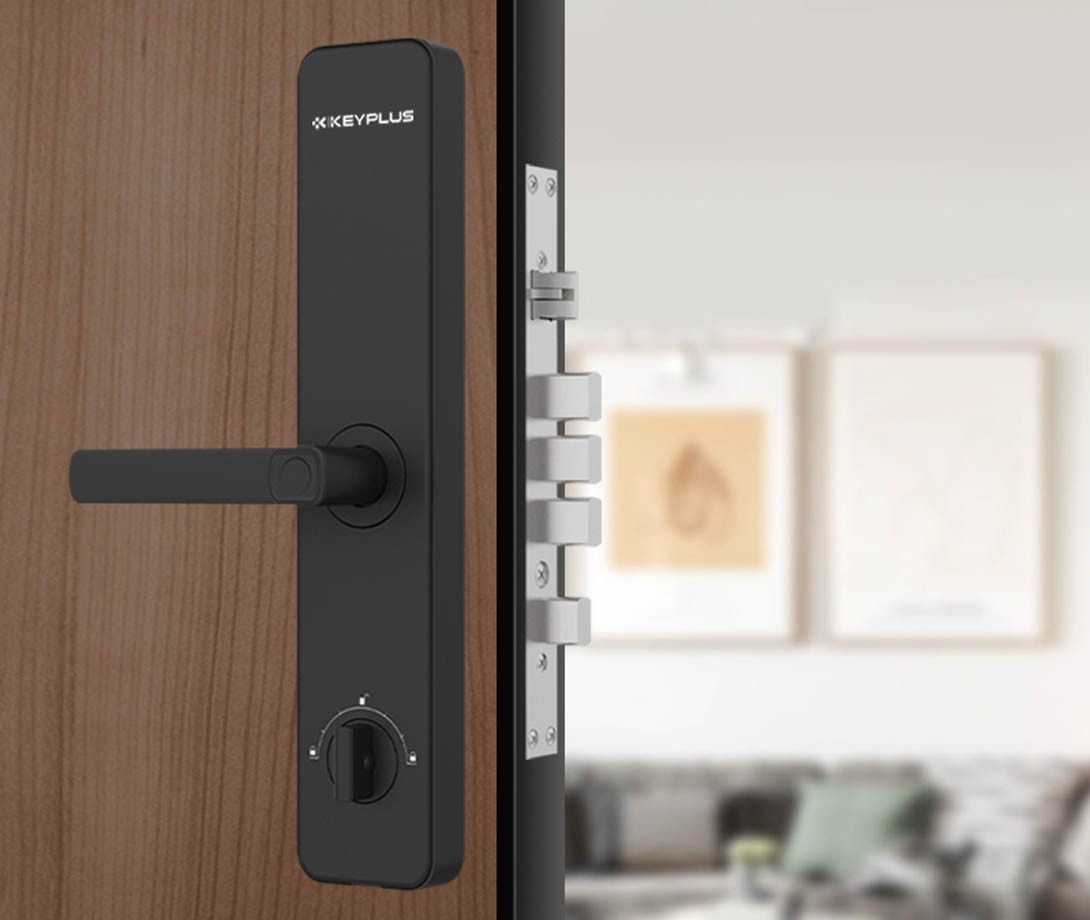Which Type of Lock Is Best for Home?
Home security is a top priority for homeowners, and choosing the right lock is one of the most important decisions you can make. With so many options—traditional deadbolts, smart locks, keyless entry systems, and more—how do you know which one is best for your home?
This guide compares the most common types of home locks, their pros and cons, and which one might be the best fit for your needs.
1. The Most Common Types of Home Locks
A. Deadbolt Locks (Single & Double Cylinder)
How They Work:
- A single-cylinder deadbolt uses a key on the outside and a thumb turn on the inside.
- A double-cylinder deadbolt requires a key on both sides (no thumb turn).
Best For:
Front doors, back doors, and high-security entry points.
Pros:
Stronger than spring-latch locks (harder to kick in).
Affordable and widely available.
Double-cylinder adds extra security (no unlocked doors from broken windows).
Cons:
Double-cylinder can be a fire hazard (need a key to escape).
Not keyless—requires carrying physical keys.
B. Smart Locks (Keyless & Wi-Fi Enabled)
How They Work:
- Use Bluetooth, Wi-Fi, or Z-Wave for remote access.
- Can be unlocked via smartphone, PIN code, fingerprint, or voice control.
Best For:
Tech-savvy homeowners, rentals, and smart home setups.
Pros:
No keys needed (convenient for families and guests).
Remote locking/unlocking (great for deliveries or service workers).
Activity logs (see who enters and when).
Cons:
Requires batteries (can die unexpectedly).
Wi-Fi models may have hacking risks.
More expensive than traditional locks.
C. Keypad Locks (Electronic Keyless Entry)
How They Work:
- Unlock with a PIN code (no keys needed).
- Some models allow temporary codes for guests.
Best For:
Renters, vacation homes, and families with kids (no lost keys).
Pros:
No keys to lose or duplicate.
Easy to change codes (better security than traditional locks).
Works without Wi-Fi (good for offline use).
Cons:
Batteries need replacement.
Cheaper models may be vulnerable to code-guessing.
D. Mortise Locks (High-Security & Commercial-Grade)
How They Work:
- A heavy-duty lock embedded into the door (common in Europe and high-end homes).
- Often includes multiple locking points for extra security.
Best For:
Luxury homes, apartments, and commercial buildings.
Pros:
Extremely durable and pick-resistant.
Multiple locking mechanisms (harder to force open).
Cons:
Expensive and requires professional installation.
Not common in some countries (harder to replace).
E. Knob Locks (Basic Security – Not Recommended for Exterior Doors)
How They Work:
- A simple twist-knob mechanism (common on interior doors).
Best For:
Not recommended for exterior doors (easily broken).
Best for bedrooms, bathrooms, and closets.
Pros:
Inexpensive and easy to install.
Cons:
Very weak against forced entry.
Should never be the only lock on an exterior door.
2. Which Lock Is the Most Secure?
| Lock Type | Security Rating | Best Use Case |
|---|---|---|
| Deadbolt (Grade 1) | ⭐⭐⭐⭐⭐ | Front doors, high-security needs |
| Smart Lock (High-End) | ⭐⭐⭐⭐ | Tech homes, keyless convenience |
| Mortise Lock | ⭐⭐⭐⭐⭐ | Luxury/commercial security |
| Keypad Lock | ⭐⭐⭐ | Rentals, keyless entry |
| Knob Lock | ⭐ | Interior doors only |
Note: The highest security rating comes from ANSI/BHMA Grade 1 locks (used in commercial buildings).
3. Factors to Consider When Choosing a Lock
A. Security Needs
- Do you live in a high-crime area? → Deadbolt or Mortise Lock
- Want keyless convenience? → Smart Lock or Keypad
B. Budget
- Low-cost: Deadbolt or basic keypad.
- Mid-range: Smart lock with Bluetooth.
- High-end: Biometric or mortise lock.
C. Smart Home Compatibility
- If you use Alexa, Google Home, or Apple HomeKit, choose a Wi-Fi smart lock.
D. Installation & Maintenance
- DIY-friendly: Deadbolts, keypad locks.
- Professional install recommended: Mortise locks.
4. Best Lock for Different Situations
Best for Front Doors:
Schlage B60N Deadbolt (Grade 1) + Smart Lock Add-On
- Combines physical security with smart features.
Best for Rentals/Airbnbs:
Wi-Fi Smart Lock
- Lets you remotely grant access without giving out keys.
Best for High-Security Needs:
Deadbolt (Pick & Drill Resistant)
- Used by banks and government buildings.
5. Frequently Asked Questions (FAQs)
Q: Should I use a deadbolt AND a smart lock?
A: Yes! A deadbolt provides physical security, while a smart lock adds convenience.
Q: Are smart locks safer than deadbolts?
A: Not necessarily—a well-installed deadbolt is harder to force open, but smart locks offer remote monitoring.
Q: Can smart locks be hacked?
A: Wi-Fi models can be vulnerable, but strong passwords and encryption help.
6. Final Verdict: What’s the Best Lock for Your Home?
| If You Want… | Best Lock Choice |
|---|---|
| Maximum Security | Grade 1 Deadbolt or Mortise Lock |
| Keyless Convenience | Smart Lock or Keypad |
| Budget-Friendly | Kwikset Deadbolt |
| Smart Home Integration | Keyplus Smart Lock |
| Rental/Airbnb Use | Keypad or Wi-Fi Smart Lock |
Final Recommendation:
- For most homeowners: A Grade 1 or 2 deadbolt is the best balance of security and affordability.
- For tech lovers: Add a smart lock for keyless convenience.
- For ultra-security: Consider a mortise or high-end deadbolt.
Which Lock Will You Choose?
The best lock depends on your security needs, budget, and lifestyle. Whether you prefer traditional deadbolts, keyless smart locks, or commercial-grade mortise locks, the right choice will keep your home safe and secure.
Would you go for a smart lock, deadbolt, or a combination of both? Let us know in the comments!
Post time: Jun-04-2025


